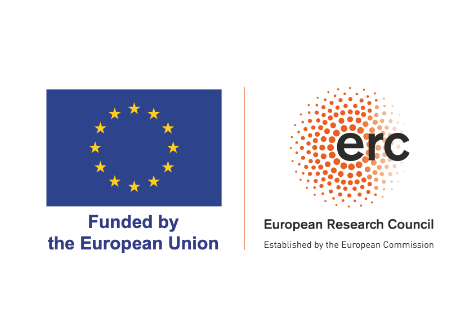PostDoc - Mineral self-organization and Origin of Life (Closed)
juanma.garciaruiz@dipc.org
We are currently accepting applications for the above mentioned position. This is a unique opportunity for junior researchers with a recent PhD degree in natural sciences or related fields to join one of DIPC’s high-profile research teams.
The role
The project is thoroughly interdisciplinary. You will be part of an international team including scientists and engineers from the University of Bremen, Naturalis Biodiversity Center (Leiden), University of Hannover, Institut National Polytechnique de Toulouse, Laboratoire Geo-Ocean Brest, Instituto Andaluz de Ciencias de la Tierra (CSIC-Granada) and coordinated by the Donostia International Physics Center (San Sebastian/Donostia).
The candidate will interact with other PROTOS post-docs and Ph.D. and master’s students from the above institutions. The candidate will work synergistically within the project PROTOS to conduct experiments on pattern formation, mineral self-organization, and the role of silica in developing chemical complexity. She or he should aim to explain the emergence of life as we know it or other life-like systems and distinguish the different steps from abiotic biomorphs to any form of primitive life. The candidate should also be interested in the plausible applications of the results of these fundamental science experiments in advanced materials science.
Desired background & competences
A broad interest in the early history of the Earth and the origin and evolution of early life.
- Fluency in English and a willingness to travel and interact in a strongly interdisciplinary team.
- PhD in Chemistry, Geochemistry, Minerals/Materials Science, or related sciences.
- Proven skills in nucleation and growth of minerals, biominerals, biomimetic materials, and/or colloids.
- Proven skills in the characterization of materials by the most advanced microscopy, X-ray diffraction, and spectroscopic techniques.
- Ability to demonstrate sufficient knowledge and expertise to manage shared instrumentation facilities.
Working conditions
- Estimated annual gross salary: Salary is commensurate with qualifications and consistent with our pay scales
- Target start date: 2025/09/01
We provide a highly stimulating research environment, and unique professional career development opportunities.
We offer and promote a diverse and inclusive environment and welcomes applicants regardless of age, disability, gender, nationality, ethnicity, religion, sexual orientation or gender identity.
The center
About the team
The selected candidate will be part of Prof. Garcia-Ruiz’s Laboratory of Mineral Self-organization and Origin of Life at the Donostia International Physics Center. The position is funded by the European Research Council (ERC) within the SYNERGY project GA-101118811 entitled “The role of silica in the dawn of life on our planet” (PROTOS) (https://protos-erc.eu/).
How to apply
The applications should include:
- A two-page letter of motivation.
- A curriculum vitae.
- Contact details of at least two referees who can provide a recommendation letter.
The reference of the specific opening to which the candidate is applying should be stated in the subject line, and the application must be received before the application deadline.
Although candidates are welcome to contact the project supervisors to know further details about the proposed research activity, please be aware that the application will be evaluated only if it is submitted directly to the email address listed below as application email.
- Reference: 2025/16
- Application deadline: 2025/07/15
- Application email: jobs.research@dipc.org
Selection process
Applications received by the deadline will be evaluated by a Committee designed by the DIPC board on the basis of the following criteria:
- CV of the candidate (40%)
- Adequacy of the candidate’s scientific background to the project (40%)
- Reference letters (10%)
- Other: Diversity in gender, race, nationality, etc. (10%)
Evaluation results will be communicated to the candidates soon after. Positions will only be filled if qualified candidates are found.
The DIPC may revoke its decision if the candidate fails to join by the appointed time, in which case the position will be awarded to the candidate with the next highest score, provided it is above 50 (out of 100).
However, the selected candidate may keep the position if, in the opinion of the Selection Committee, the candidate duly justifies the reasons why he or she cannot join before the specified deadline, and as long as the project allows it.
This project has received funding from the European Research Council (ERC) under the European Union’s Horizon Europe research and innovation programme (grant agreement No [101118811]-PROTOS)

